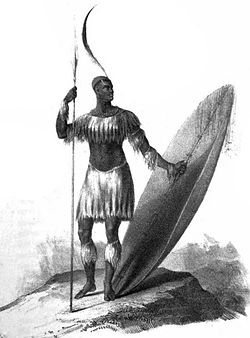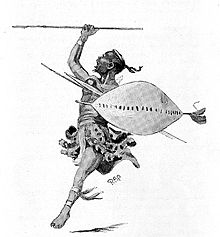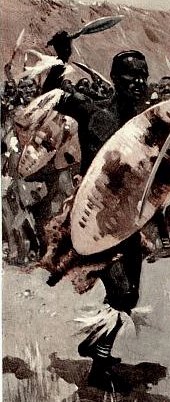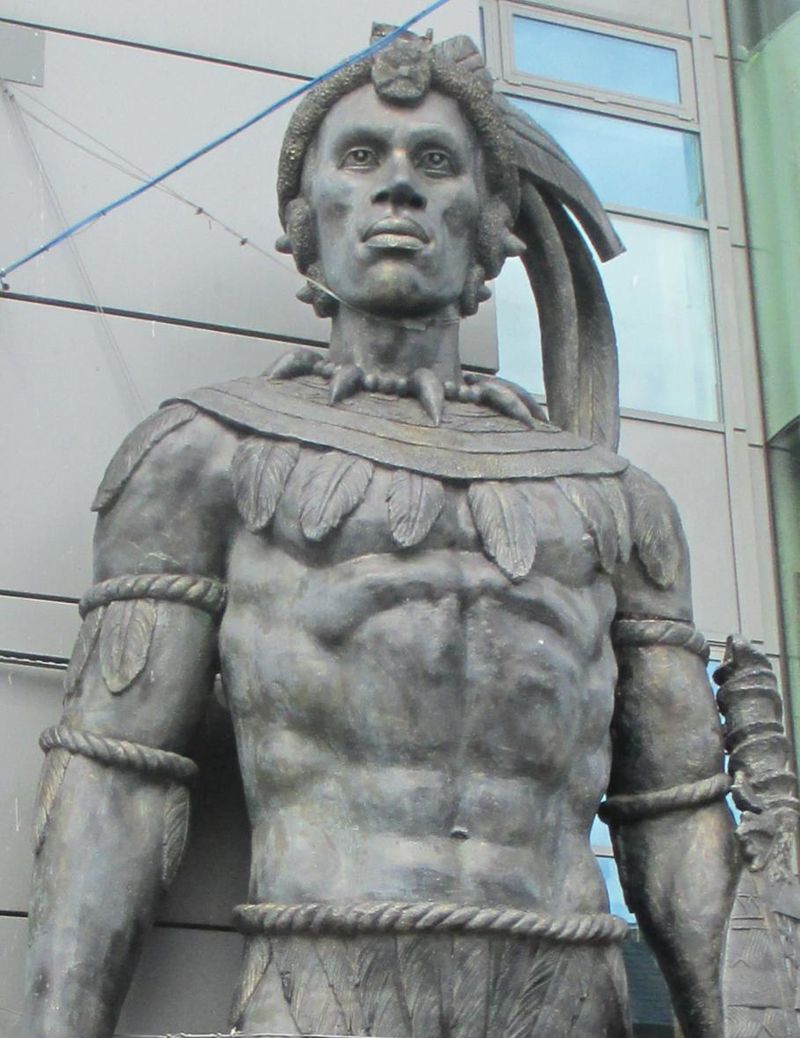Each continent has had its own significant and feared warriors. For Africa, one name to remember is that of Shaka, the great king and founder of the Zulu Empire in the early decades of the 19th century. Shaka was born and raised in the southeast of what is today South Africa, and during his short but turbulent and violent reign, he brought together hundreds of independent Nguni chiefdoms.
As the story goes, Shaka was born around the year 1787, the son of Senzangakhona, who at that time reigned over the tiny chiefdom known as the Zulu. Shaka’s mother was called Nandi, and at that point, she was not a legal wife to Senzangakhona.
The two were expelled from Senzangakhona’s home and moved to live among the Langeni people. Being an illegitimate child certainly was not an easy thing to go through around the Nguni tribes, and during most of the childhood days, Shaka was bullied everywhere he went.
After spending some time with the Langeni tribe, the mother and the child eventually moved again, this time to live among the Mthethwa people, who were led by Chief Dingiswayo. It would be here that the next great warrior of the Nguni tribes found fulfillment while serving the army under Dingiswayo. Shaka soon mastered various tactics and strategies on the battlefield.

Possessing the perfect body of a warrior and a remarkable diplomatic talent as well, he quickly rose in rank, eventually becoming a chief commander, and also someone who was excited by the idea of demonstrating power to others.
As soon as Shaka’s father died sometime around 1816, Dingiswayo helped his young trainee in ousting and murdering his older brothers back in the Zulu village, and that is how Shaka finally became a ruler. At this point, the Zulu people were a really small group, a community of not more than 1,500 in number. But everything started to change under Shaka’s reign.

Not losing any time in testing his military knowledge in real life, Shaka went after conquering the first and then more of his neighboring tribes. The Langeni, where he spent part of his childhood, were among the invaded people.
Military success came quickly to Shaka as he was outstanding in organizing his army. His regiments were armed with new weapons called assegais. These were a type of short spear but with a long blade, and almost always deadly for the adversary. “Victory or death” he would shout at his warriors to encourage them before carrying out a new campaign.

Discipline was at the core of Shaka’s method of training the army. No men were allowed to wear sandals for one. The reasons was that everyone got to strengthen their feet by running barefoot. In doing so, the Zulu forces came to be very mobile, and this was one of their best advantages compared with armies of other tribes.
As time went by, more and more tribes were assimilated under the Zulu. Whoever survived was taken as a Zulu. By the year of 1823, the Zulu were no longer an insignificant tribe–they now controlled a vast area of 11,500 square miles that spread along the coast of the Indian Ocean. Whoever didn’t want to get assimilated by the Zulu, had to go elsewhere.

Interesting enough, while Shaka acted as a terrible tyrant for the people back home, he was friendly enough with the first white traders who arrived at the port Natal around 1824. The warrior sent delegates to greet the visitors, and he also allowed them to use some of the lands of his kingdom. He was interested in learning more about the newcomers, perhaps obtaining some new technology, although he planned to attack at one point. No such conflict happened during his time in power anyway.
However, things got out of control as soon as his mother, Nandi, passed away in 1827. Initially, he became angry after judging that some people had not expressed sufficient grief at her mourning ceremonies. Shaka rage veered into madness, and he killed hundreds of Zulu. Supposedly, he also ordered all women carrying babies as well as their spouses be put to death.
Such deeds ultimately cemented the way for his inevitable downfall and assassination. In September 1828, Shaka’s own brothers went on to kill him, and one of them became the new king of the Zulu people.
